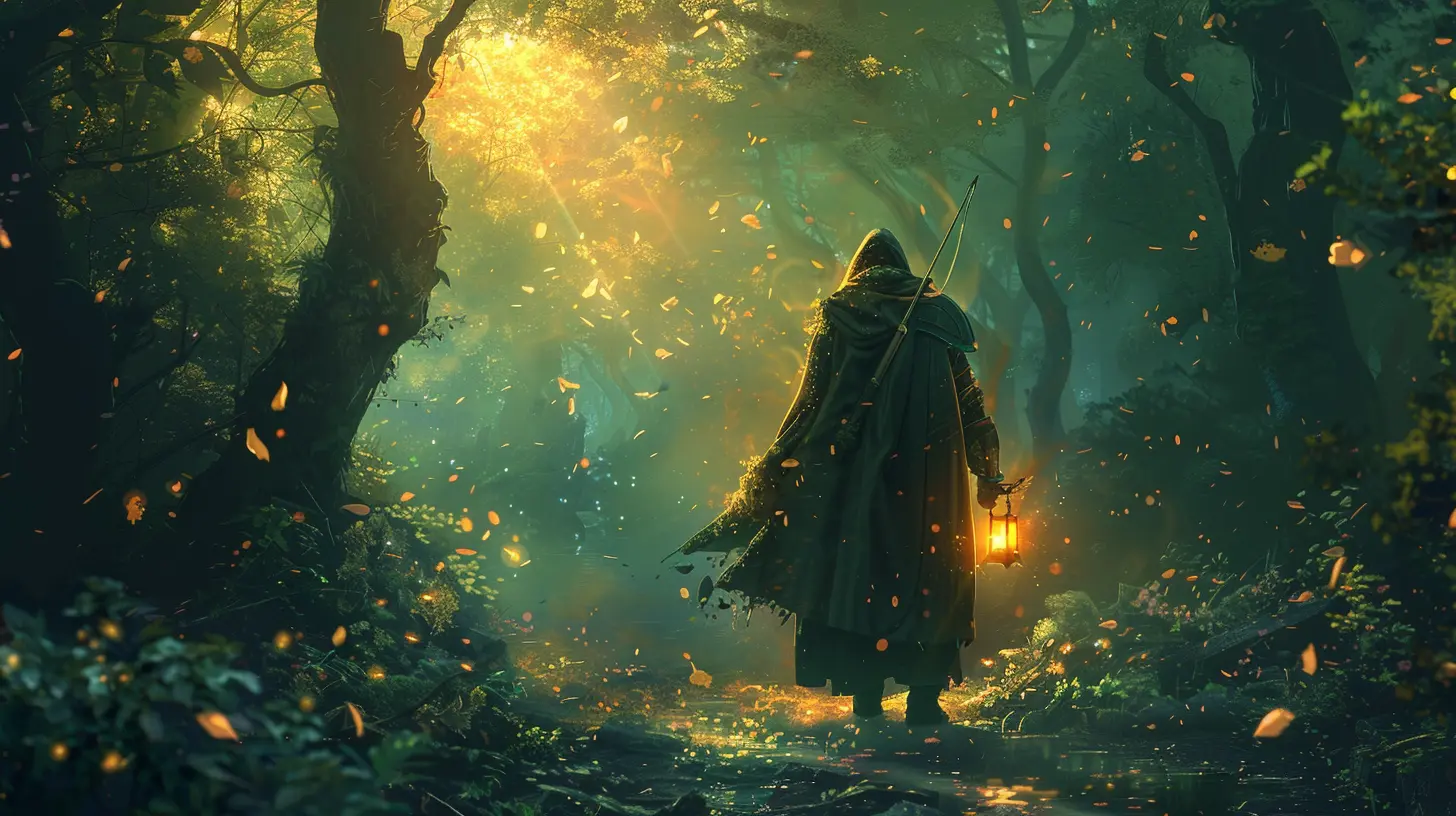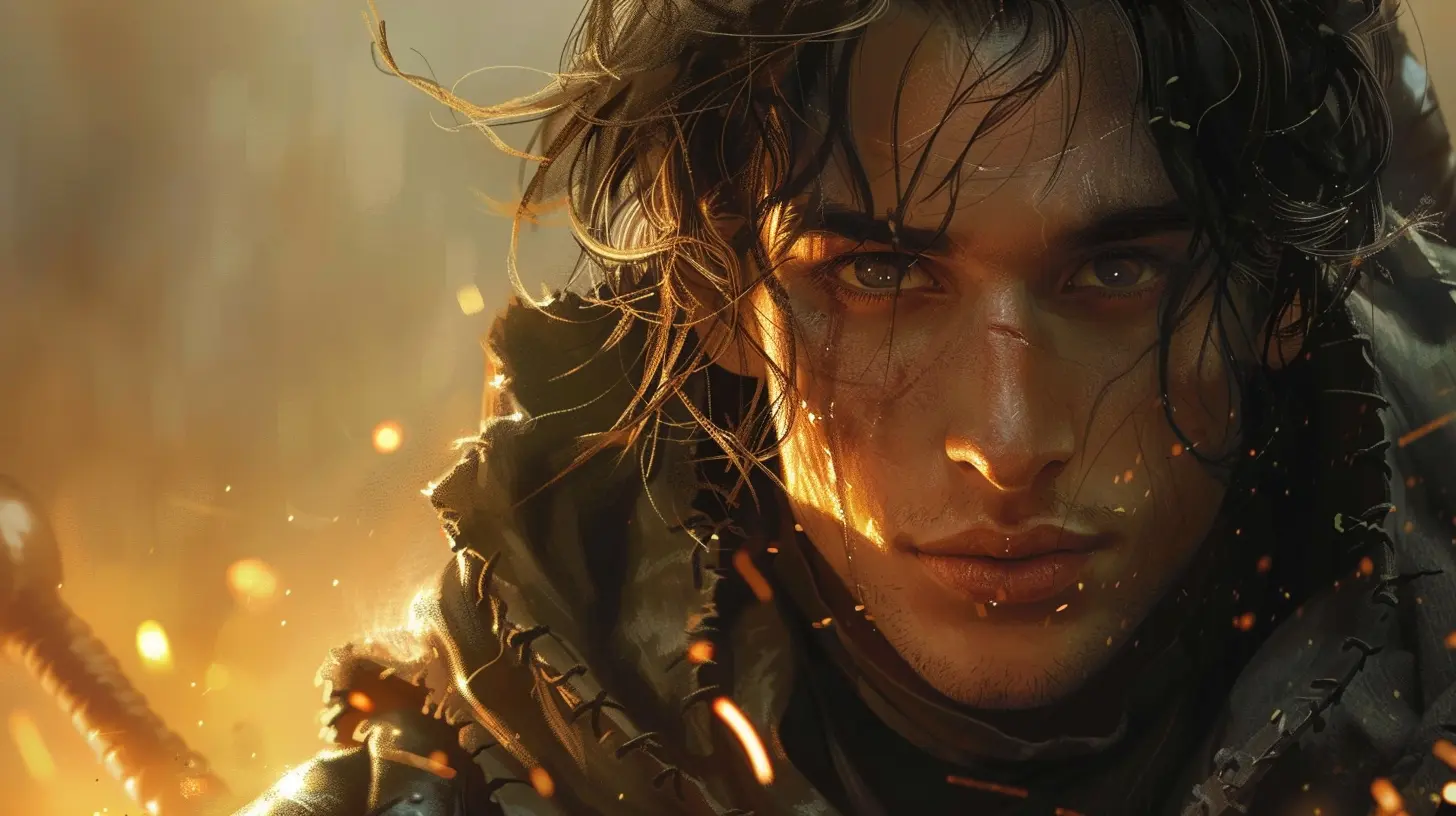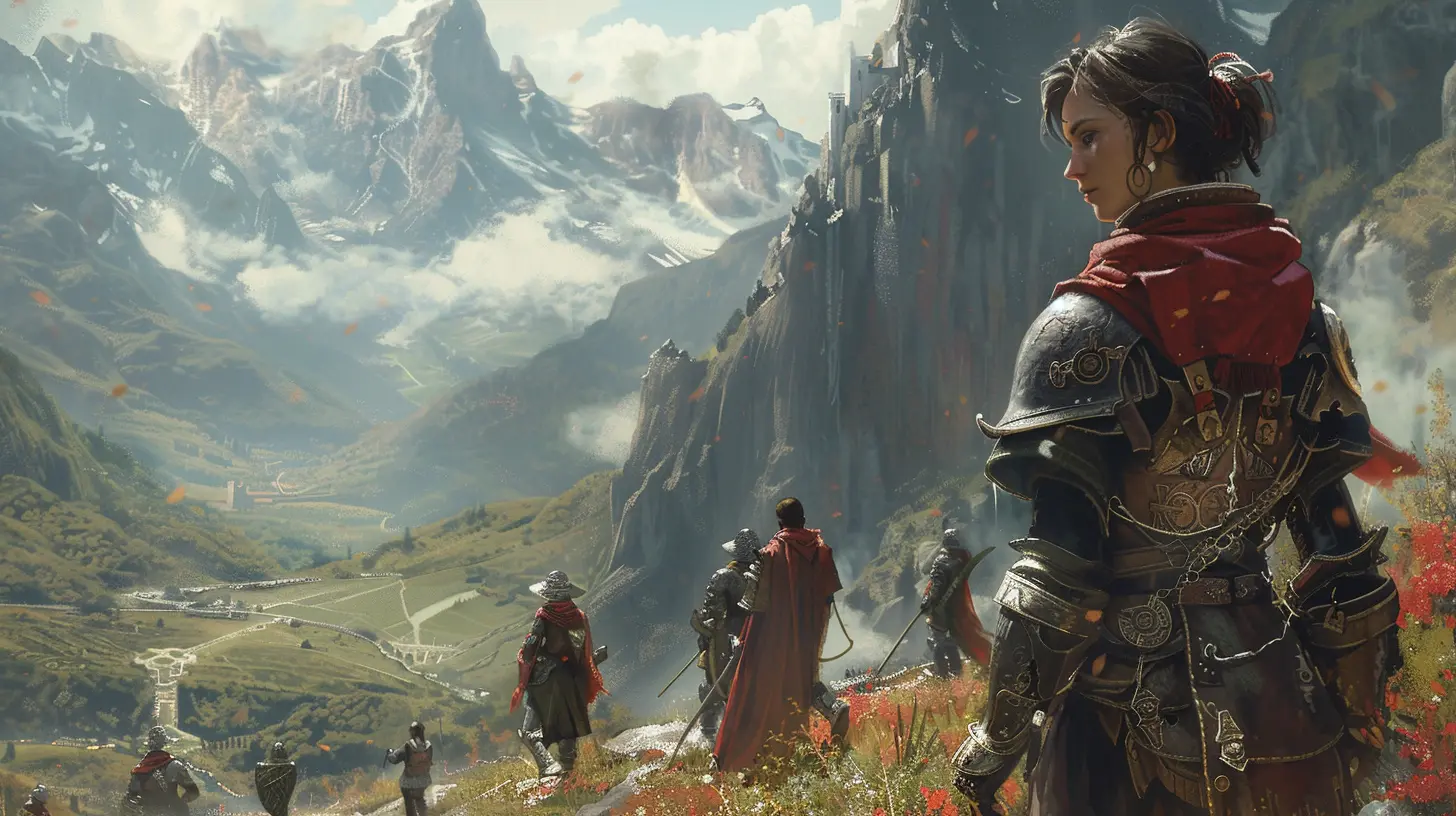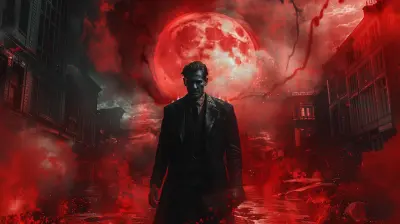Companions with Personality: AI That Makes Fantasy Games Better
19 September 2025
Let’s be honest: who hasn’t dreamed of embarking on an epic fantasy adventure with a loyal companion by their side? Someone (or something) to laugh at your terrible jokes, save your sorry butt when you’re outnumbered, and occasionally scold you for looting every single decorative vase in a 10-mile radius. Yeah, we’ve all been there. But the good news? Video games are finally catching on.
Gone are the days when your in-game allies were about as useful as a talking toaster. Now, thanks to artificial intelligence, companions in fantasy games are coming alive. They’ve got quirks, personalities, and, dare I say it, attitudes. These AI buddies don’t just follow us around like obedient puppies—they make the game better. Like, WAY better. Let’s dig into why companions with personality are the secret sauce of fantasy gaming. 
Good Riddance to Cardboard NPCs
Remember the NPCs (non-player characters, for the uninitiated) from yesteryear? You know the ones: they crack one line of dialogue on repeat, stare blankly into the void, and have zero reaction to anything happening around them. I’m 99% sure some of them were programmed by someone halfway through a nap.But now? AI is spinning NPCs into characters with actual depth. They’re no longer lifeless signposts filling up space. AI companions in modern fantasy games have personalities, complex backstories, and unique behaviors—and they’re not shy about letting you know it.
Take games like The Elder Scrolls V: Skyrim, for instance. Lydia, the ever-loyal housecarl, has her moments of sass. Sure, she’s sworn to carry your burdens, but her tone screams, “Seriously? Another rusty axe?!” Those moments are unforgettable because she feels almost human. 
Why Personalities Matter: More Than Just Eye Candy
Let me put it this way: would you enjoy a road trip with a friend who only says, “Yes,” to everything you say? Probably not. The same goes for AI companions in gaming. Without personality, they’re just digital wallpaper.What makes these AI-powered characters stand out is their ability to react to situations organically. Did you just attempt to charm a troll? Your companion might roll their eyes, crack a joke, or mutter, “Great, that’s gonna work out well.” Did you ignore the main quest to pick flowers for three hours? Expect some sarcastic commentary.
These dynamic interactions are what make fantasy worlds feel alive. When done right, your AI companion isn’t just a tool to help you win battles—they’re someone you learn to care about. And honestly, isn’t that the point of fantasy? To feel like you’re part of a bigger, immersive story? 
The Role of AI: From Sidekicks to Scene-Stealers
You know those moments in fantasy games where your companion saves the day? AI takes those moments up about ten notches. Modern AI doesn’t just make companions better—it makes them the stars of the show.1. They’re Smart (Like, Scary Smart)
AI’s biggest flex in gaming is its ability to learn and adapt. Your companion will react differently based on your choices. Are you a morally questionable rogue who lies his way to victory? Expect judgmental glares. Are you a do-gooder who saves every damsel in digital distress? Get ready for those pats on the back.Take Mass Effect’s squad members, for example. These digital companions remember your decisions and even throw them back in your face later. Betrayed someone in a fit of convenience? Garrus or Tali might bring it up 20 hours later, reminding you that AI has a long memory.
2. Conversations That Slap
Gone are the days of canned dialogue repeated ad nauseam. AI companions now have branching conversation trees that respond to your actions and progress in the game. In Dragon Age: Inquisition, your party banter between characters like Cassandra and Iron Bull is pure gold. It’s like being trapped in a dysfunctional but hilarious family reunion.3. Unexpected Twists
Oh, and let’s not forget the plot twists. AI companions can betray you, confess their undying love, or reveal that surprise! they’ve been working for the villain all along. It’s like a soap opera but with swords and magic.
Building Emotional Connections with Companions
Here’s the kicker: the best AI companions get you emotionally invested. They become your ride-or-die. You’re not just fighting for your life—you’re fighting because you don’t want to see your quirky, snarky, whip-smart AI buddy bite the dust.Take the late, great The Last Guardian, where your companion is a giant, clumsy bird-dog-cat thing named Trico. (Yes, I’m calling it a thing—what even WAS that?) Over time, you build trust with Trico. When something happens to them, you feel it. And let’s face it, most of us ugly-cried during that ending.
And don’t even get me started on Red Dead Redemption 2’s Arthur Morgan and his horse. It’s just an animal, right? Wrong. AI gave that horse a soul. A SOUL.
Sarcasm and Snark FTW
One of the most underrated perks of AI companions? Their glorious sarcasm. Let’s be real: fantasy worlds can get a little… intense. (Looking at you, dark and broody The Witcher universe.) A sassy AI companion is like a much-needed breath of fresh air.Take Borderlands 2’s Claptrap. Love him or hate him, his relentless optimism and absurd comments made the game 10x funnier. Sure, he’s a walking trash can, but he’s a trash can with personality.
In Horizon Zero Dawn, Sylens isn’t exactly a comedian, but his dry, sarcastic quips about Aloy’s decisions hit just right. He’s basically every annoyed IT guy you’ve ever met, but in a fantasy setting.
The Future of AI Companions: Even Better Than Now
So, what’s next for AI companions? Honestly, we’re heading toward some Black Mirror-level stuff.- Voice Recognition: Imagine companions that respond to YOUR voice. Picture yourself yelling at your screen, and your AI buddy yelling back. “Uh, did you really just aggro three dragons at once? Smooth move, genius.”
- Procedural Personalities: AI companions that evolve and change based on your playstyle. They could become grumpier if you don’t follow quests or more loyal if you fight like a boss.
- Co-Plotting: In the future, AI companions might actively shape the storyline alongside you. Your choices will no longer just impact the world but could also alter the very essence of your sidekick’s character.
Are we ready for this kind of depth in gaming? I mean, probably not. Will we cry anyway when our AI bestie dies after heroically saving us in the final boss battle? Absolutely.
Final Thoughts: Why Every Fantasy Game Needs a Sassy AI Bestie
Fantasy games are fun, but fantasy games with snarky, emotionally complex AI companions? That’s the stuff of legends. These characters don’t just tag along for the ride—they make the journey memorable. Whether they’re saving your hide, cracking jokes, or throwing shade, AI companions with personality add a whole new layer of immersion to gaming.So, developers, take notes. We want companions who care, companions who roast us when we’re stupid, and companions who stick with us—warts, glitches, and all. Because let’s face it: the best stories are the ones we don’t want to finish, and the best companions are the ones we never want to leave behind.
all images in this post were generated using AI tools
Category:
Fantasy GamesAuthor:

Stephanie Abbott
Discussion
rate this article
1 comments
Zethryn Larsen
Finally, companions with depth! If AI can bring NPCs to life, we might just spend more time chatting with them than battling foes. Here's to forging bonds in worlds beyond our own!
September 27, 2025 at 4:00 PM

Stephanie Abbott
Thank you! We're excited about the potential of AI to create meaningful connections in games, making adventures even more immersive. Here's to deeper experiences!


